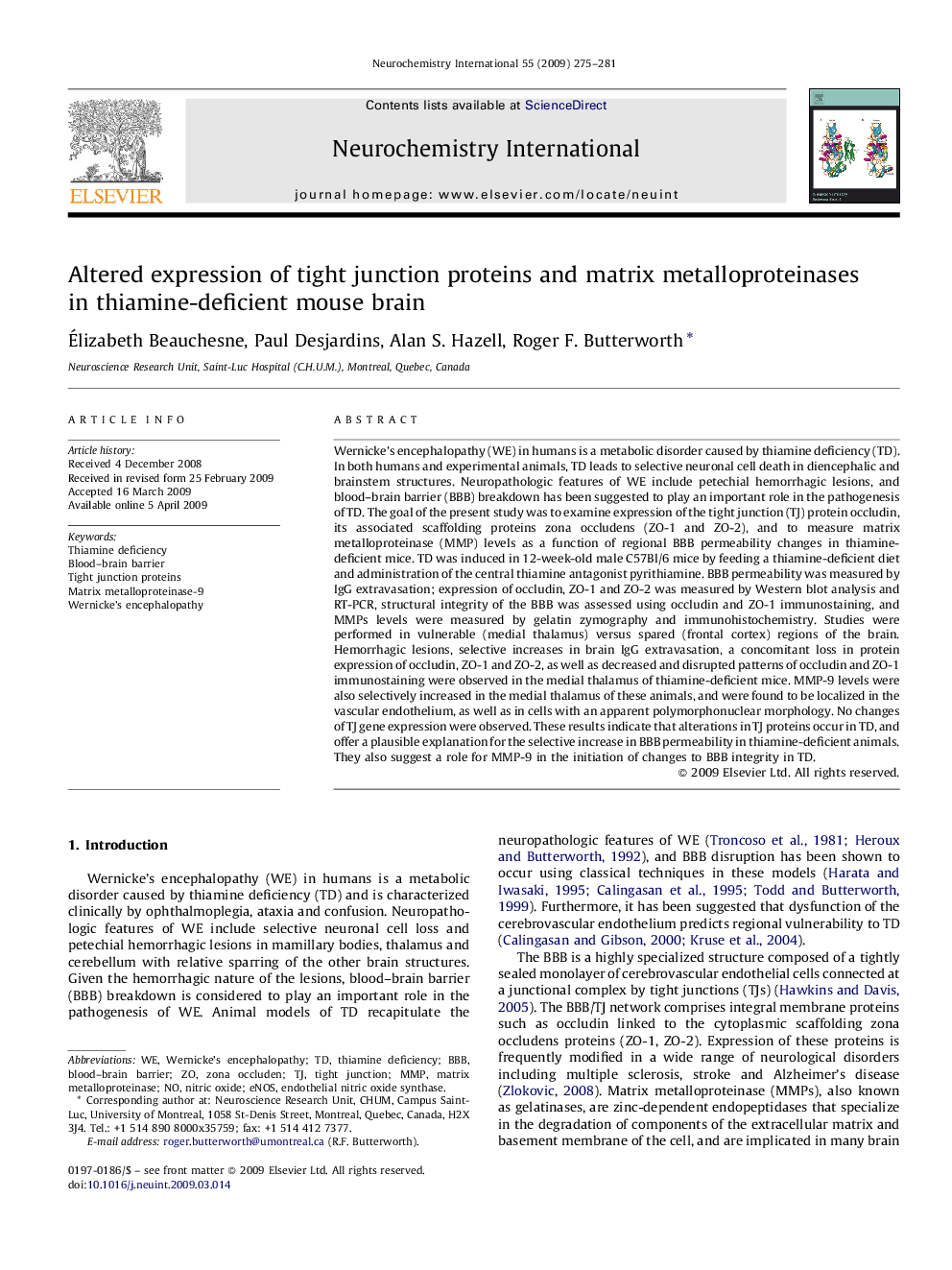| Article ID | Journal | Published Year | Pages | File Type |
|---|---|---|---|---|
| 10958358 | Neurochemistry International | 2009 | 7 Pages |
Abstract
Wernicke's encephalopathy (WE) in humans is a metabolic disorder caused by thiamine deficiency (TD). In both humans and experimental animals, TD leads to selective neuronal cell death in diencephalic and brainstem structures. Neuropathologic features of WE include petechial hemorrhagic lesions, and blood-brain barrier (BBB) breakdown has been suggested to play an important role in the pathogenesis of TD. The goal of the present study was to examine expression of the tight junction (TJ) protein occludin, its associated scaffolding proteins zona occludens (ZO-1 and ZO-2), and to measure matrix metalloproteinase (MMP) levels as a function of regional BBB permeability changes in thiamine-deficient mice. TD was induced in 12-week-old male C57Bl/6 mice by feeding a thiamine-deficient diet and administration of the central thiamine antagonist pyrithiamine. BBB permeability was measured by IgG extravasation; expression of occludin, ZO-1 and ZO-2 was measured by Western blot analysis and RT-PCR, structural integrity of the BBB was assessed using occludin and ZO-1 immunostaining, and MMPs levels were measured by gelatin zymography and immunohistochemistry. Studies were performed in vulnerable (medial thalamus) versus spared (frontal cortex) regions of the brain. Hemorrhagic lesions, selective increases in brain IgG extravasation, a concomitant loss in protein expression of occludin, ZO-1 and ZO-2, as well as decreased and disrupted patterns of occludin and ZO-1 immunostaining were observed in the medial thalamus of thiamine-deficient mice. MMP-9 levels were also selectively increased in the medial thalamus of these animals, and were found to be localized in the vascular endothelium, as well as in cells with an apparent polymorphonuclear morphology. No changes of TJ gene expression were observed. These results indicate that alterations in TJ proteins occur in TD, and offer a plausible explanation for the selective increase in BBB permeability in thiamine-deficient animals. They also suggest a role for MMP-9 in the initiation of changes to BBB integrity in TD.
Keywords
Related Topics
Life Sciences
Biochemistry, Genetics and Molecular Biology
Cell Biology
Authors
Ãlizabeth Beauchesne, Paul Desjardins, Alan S. Hazell, Roger F. Butterworth,
